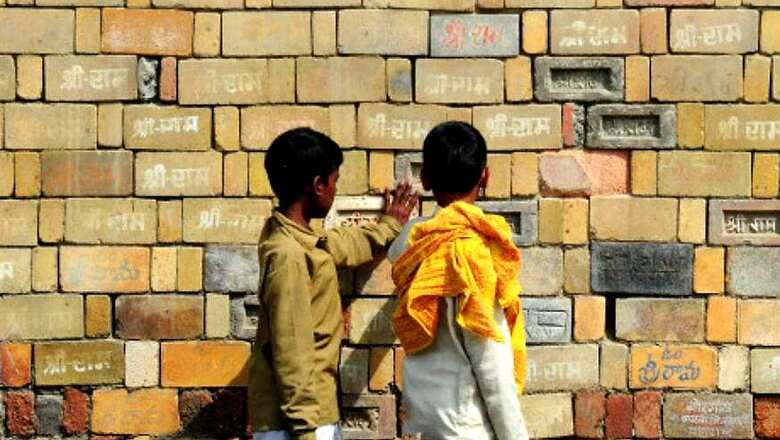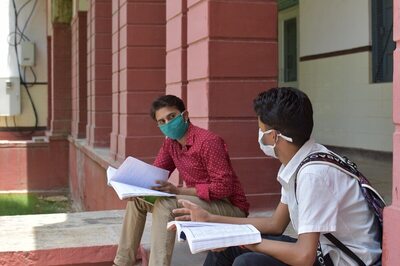
views
The judgment in the Ayodhya case is set to be delivered any time. Already, from the prime minister to RSS boss Mohan Bhagwat, sense has been conveyed that there should be no display of triumphalism from the Sangh Parivar.
In the midst of anticipation amongst BJP and RSS workers, the Sangh, it seems, is working on a blueprint to realign the entire social narrative in India.
News18 spoke to a senior RSS leader involved in several meetings over the last one week to figure out the contours of this blueprint. For one, the RSS wants to use this judgment as a chapter to recast the contemporary politics; and perhaps also the way modern and medieval history of the sub-continent has been written.
"Why should the Muslim history be steeped in what someone like a Babar stood for? Why shouldn’t Muslims look at the role of those Indians who participated in our freedom struggle? For the Indian Muslims, a positive historical context for those who were nothing but Islamic invaders is something which will never be acceptable," the leader said.
Perhaps, it’s this pronounced desire to reset the entire Muslim political and historical narrative in India which forced the lawyer for Sunni Waqf board in Supreme Court, Rajiv Dhawan, to say that if you accept a deity as a living being worthy of being worshipped, with land rights, then you will end up opening a Pandora’s box all across the country.
"We want a society where divisions on basis of region, caste and other ethnic identities should dissolve into one identity of nation first. All citizens who live in India are Indians first. Why should we continue to look at people through the microcosm of their regional/linguistic or any other identity form?" the senior leader asked.
When asked if those living in Tamil Nadu or in the north-eastern states not be negatively impacted by this campaign, the source states: "Once people start looking at themselves purely as citizens of India, these differences will disappear. We experimented by inviting north eastern tribes to the kumbh mela in Prayag. Many of them were Christians. By the time they got through the experience, they were adept at doing poojas themselves. We didn’t ask them to perform these poojas. They did so upon seeing what Hinduism was all about."
On the other side of the political divide, within the Muslim community, the feeling is "let’s move on with clear cut commitment that what’s happening in Ayodhya won’t happen elsewhere".
However, when asked if there could be any such commitment from the RSS, the source said, "If we can indeed build a temple in Ayodhya, it will be the final nail in the politics of secularism where Muslims were always offered something as a token. The temple will close the chapter of Muslim appeasement forever. Once that stage is crossed, attempts will be made more aggressively to bring in more Muslims within the economic and political mainstream."
But that may be easier said than done. After all right since 2014, the message has been clear. Use the anti-minority sentiment which is latent for greater political dividends. With 303 Lok Sabha seats, abrogation of article 370, the Ayodhya case are the last big issues for creation of a well-established 'Hindu Rashtra'. A feat that RSS feels will help the society to paper over its petty differences.
The jury is out on whether it will paper over social differences or aggravate them even more.



















Comments
0 comment